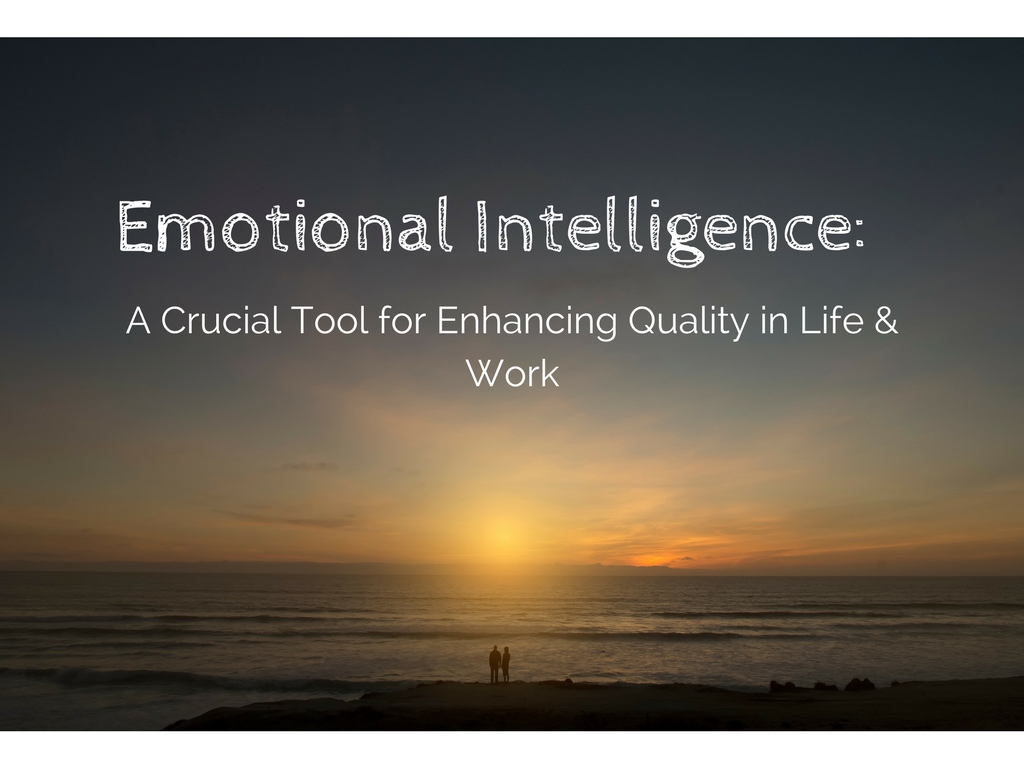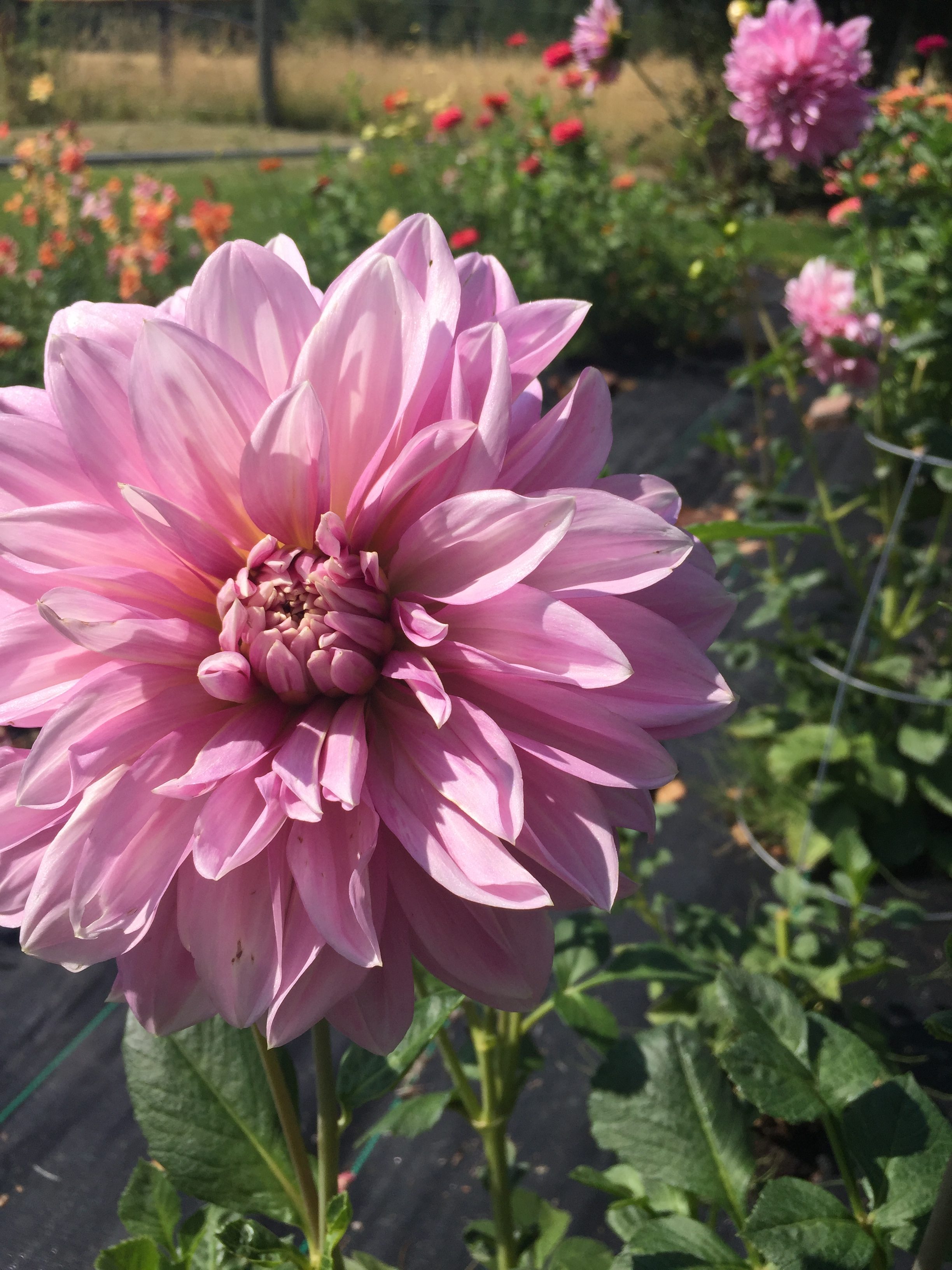Mon, 30 January 2017

"Life circumstances have little to do with happiness because much happiness is under your control — the product of your habits and your outlook on life. Happiness is synthetic — you either create it, or you don’t." —Life Altering AwarenessThe uncertainties in life are vast. But to errantly ignore the ability to master the certainties is a mistake. Each of us is capable of cultivating a life that is fulfilling and attains true contentment no matter what changes life may bring by honing the tool of Emotional Intelligence. A term created by researchers Peter Salavoy and John Mayer and brought into the mainstream culture by Dan Goleman in his 1996 book Emotional Intelligence, EQ is often the detail forgotten about that upon tending to makes a significant difference in the quality of our lives no matter what the circumstances may be. And the beauty is each of us has the ability to improve our EQ. What is Emotional Intelligence you may be asking? Often broken down into three components and skills: Definition of EQ: 1. Emotional awareness, including the ability to identify your own emotions and those of others; 2. The ability to harness emotions and apply them to tasks like thinking and problems solving; 3. The ability to manage emotions, including the ability to regulate your own emotions, and the ability to cheer up or calm down another person. Let's look at it another way: EQ is divided into two components the Personal and Social. There are four abilities one will exhibit if they have a high emotional intelligence:
At the foundation of developing a strong EQ is the awareness of a balance that is often discussed here on TSLL. Exploring and understanding ourselves whilst respectfully and thoughtfully navigating the world around us whether in work or play is, when we look at what our lives are all about, what living well should be all about. Striking a healthy balance between ourselves and the relationships we build, and ensuring the relationships we build with ourselves and others are healthy, respectful, thoughtful, loving and kind. EQ is simple in theory, and eventually does become simple in practice, but initially, it will take time, attention and patience to build a muscle that may not have been worked in quite some time or ever. Now, as you will see below, there are many different characteristics. I suggest taking an EQ test (short or long) to determine where your strengths and weaknesses are as most of us may be quite proficient in some areas, but consciously or unconsciously weak in others. And with any eventual success, the first step toward improving is knowing where you need to improve and pat yourself on the back for what you already do well. But first, let's look at the carrot. What can be gained by improving our EQ? Benefits & Characteristics:
The benefit at the top of the list alone is the reason I have been actively researching and continuing to remain curious about the concept of EQ. As I continue to improve and apply the practices of being emotionally intelligent to my personal and professional relationships, I have begun to see remarkable improvements, which is why I want to share with you some tools I have found to work for me, have been suggested by my counselor and shared online via a handful of sources (all are listed at the bottom of the post). Tools to Enhance EQ:
Emotional Intelligence has been proven to be more vital and a more accurate determinate than IQ when it comes to long-term success in one's quality of life. And the good news is unlike one's IQ, EQ is a learned skill. It is something we can practice and improve upon no matter what our age. However, because it is a skill, as The Atlantic pointed out in 2014, it might also be used for nefarious purposes. In other words, once one becomes extremely proficient at observing and recognizing emotions both in themselves and others they can use the tools to manipulate for self-serving outcomes. However, to counter, as a friend pointed out recently as I was discussing the topic of today's post/episode, if indeed someone is abusing this skill, then are they truly Emotionally Intelligent? Because to return to the original definition of EQ, it involves a vast amount of empathy; the ability to understand and share the feelings of another. Life continues to reveal to me that quality is something that doesn't just occur, it is cultivated, it is conscious, it is requires consistency. Yes, it might be helpful if the improvements in our lives could occur by simply buying a particular product, a certain type of home or outfit, but the reality is no matter what clothes you wear, what size your home or what type of degree you have, knowing how to understand your emotions and observe them accurately in others followed by healthy action that respects who you are as well as those around you is the yeast of life. If you want to rise, if you want what you value to rise, invest in your emotional intelligence. Because when we do, beautiful moments in the everyday whether we are with others or in our own company will regularly manifest. ~Post Sources: Psychology Today, Mindtools & The Atlantic ~The Four Agreements by Don Miguel Ruiz
~SIMILAR POSTS FROM THE ARCHIVES YOU MIGHT ENJOY: ~A Powerful Couple: Boundaries & Vulnerability ~Why Not . . . Master the Art of Conversation? ~Why Not . . . Have That Difficult Conversation? ~Why Not . . . Avoid Unnecessary Stress?
~Petit Plaisir:~"The Power of a Dose of Nature", via The Wall Street Journal ~image from TSLL IG feed (below)
 ~The Simple Sophisticate, episode #140~Subscribe to The Simple Sophisticate: iTunes | Stitcher | iHeartRadioImage: source |
Mon, 23 January 2017
~The Simple Sophisticate, episode #139~Subscribe to The Simple Sophisticate: iTunes | Stitcher | iHeartRadio"When we take the right to rest, when we make rest fulfilling, and when we practice rest through our days and years, we also make our lives richer and more fulfilling." —Alex Soojung-Kim Pang, author of Rest: Why You Get More Done when You Work LessCharles Darwin partook in regular 10 miles walks, Alice Munro walked three miles each day, Winston Churchill engaged in painting, Lin-Manual Miranda took his dog each Sunday for walks through the parks in New York City, J.R.R. Tolkien and Ray Bradbury took daily afternoon naps, workers at Bletchley Park during WWII chose chess as a favorite pastime and associate justice of the United States Supreme Court Elena Kagan boxes regularly with her personal trainer. Initially when the word 'rest' is mentioned, we may think of sitting on the sofa, flipping through channels, but the difference between mindless rest and deliberate rest is that it "enables productivity". When we truly rest, our minds are not actually stagnant. In actuality, we are enabling them to do what they need to do, work through, dispose of, find and reach understandings and connections that when we are active at work, it is unable to do completely. The difference between mindless and deliberate rest is what you are feeding your brain. Sitting down and watching a thoughtful, engaging film can absolutely be deliberate rest. It may offer ideas and insights that eventually help us make connections we didn't see prior to viewing of the film; the key is to feed our minds well. Give it quality fuel and quality results have the possibility of being produced, even while we sleep. Recently, Alex Soojung-Kim Pang's new book Rest was released, and contained inside the covers is a wealth of research, seemingly infinite anecdotes from historical and current individuals that reveal the power of deliberate rest being incorporated into our daily lives. Throughout today's post, I will be sharing many different quotes, and unless otherwise attributed, they are pulled from the pages of Rest. As we begin 2017 and we look to the future we wish to build for ourselves, it may appear as though we have much to do in order to accomplish what we have placed on our list of resolutions or goals. But in order to be successful in whichever destination we pursue, the concept of quality over quantity guides the way. How is that possible? How can we do less and actually attain more? By tossing what the zeitgeist portrays as the "right way" to achieve success out with 2016. "Today, we treat being stressed and overworked as a badge of honor, a sign of seriousness and commitment; but this is a recent phenomenon, and it inverts traditional ideas of how leaders and professions should behave under pressure. For most of history, leaders were supposed to appear calm and unhurried; success began with self-mastery and self-control." ~For more in-depth discussion on each of the points discussed below, be sure to tune in to the podcast. Benefits:1. Helps to organize your life 2. Cultivates calm in your life 3. Strengthens your will-power and self-control 4. Increases your confidence 5. Increases emotional intelligence and engagement 6. More time is given as boundaries are made firm and clear 7. Increases success and accomplishment, aiding you in reaching your full potential 8. Live a long, healthy, invigorating life 9. Helps you live a simply luxurious life "It creates a life that's rewarding while it's lived, a life that has purpose and pleasure, work and reward, in equal measure. And that life feels complete and well-spent at the end." How to welcome deliberate rest into your life:1. Make rest a priority "Taking rest seriously also helps bring more of your life into clearer focus." 2. Spend only 4-5 hours each day doing strenuous work 3. Establish a consist morning routine "My morning is all about stilling the outside world so my mind can soar." —Scott Adams, the illustrator and creator of the comic strip Dilbert 4. Set clear boundaries between work and rest "A day that starts with work creates rest that can be enjoyed without guilt. When you start early, the rest you take is the rest you've earned." 5. Take regular walks 6. Nap regularly and nap well "The most obvious benefits of napping is that it increases alertness and decreases fatigue . . . but regular naps have other benefits . . . improve memory . . . [and] consolidate things you've just learned." 7. Enjoy a regular, deep night's sleep 8. Detach and take that vacation 9. Exercise regularly "At first, researchers mainly investigated the benefits of exercise for healthy aging, but studies now show that for people of any age, gender, or athletic ability, exercise can increase brain power, boost intelligence, and provide the stamina and psychological resilience necessary to do creative work." 10. Cultivate a hobby you love and that challenges you Perhaps when you read #2 on the list above, you said to yourself, nope, that will never happen, not in my world, not in the job I have to do every day to earn my paycheck. And on the surface, you are absolutely correct. But what if you could look at the job you go to each day and redesign your day? What if you could schedule your day so that you did tend to the most strenuous demands at the beginning and then schedule meetings, projects and activities toward the tail-end that allowed you to not tax your mind directly as much? Understandably, what job you do and for whom you work and the expectations will play a significant role. What I appreciated upon reading Rest is that it validated what I already felt regarding the productivity of my work. When I worked at my best, when I felt my most exhausted, it gave me a reason as to why. It helped me understand my mind, my body and the benefits of what I am doing and what I need to make sure I continue to do and what I can begin to let go of as it no longer serves me or the quality of life I am trying to cultivate. Saying no to what no longer serves the simply luxurious life you are building becomes easier when we have science to explain what works best, but we also have to understand what type of life we want to build, and when we know that and believe it to our core, the saying of "no" and the incorporation of deliberate rest into our lives becomes far easier. And that is when our lives begin to truly blossom. We don't have to look busy to gain approval. The gift of living well is that our lives often will look paradoxical: How can she/they/he live such a life and not be exhausted/stressed and have time to enjoy, play and partake in the pleasures as well? But the reality is, it is indeed possible when we choose to live consciously and thoughtfully. "A life that focuses on what matters most, makes time for rest, and declines unnecessary distractions may look simple on the outside, but from the inside it is rich and fulfilling." Deliberate rest paired with deliberate work is a partnership: "One provides the means to live, the other gives meaning to life". "When we treat rest as work's equal and partner, recognize it as a playground for the creative mind and springboard for new ideas, and it as an activity that we can practice and improve, we elevate rest into something that can help calm our days, organize our lives, give us more time and help us achieve more while working less."~SIMILAR POSTS FROM THE ARCHIVES YOU MIGHT ENJOY: ~15 Everyday Habits to Live a Life of Contentment ~10 Things People Who Have Found Contentment Understand About Uncertainty ~Relax: 21 Ways to Know You're Doing Just Fine in This Thing Called Life Petit Plaisir:~Equipment silk pajamas, Lillian striped washed-silk pajamas - 50% off at Netaporter ~use promo code EXTRA40, at Equipmentfr.com Image: Vogue UK |
Mon, 16 January 2017
~The Simple Sophisticate, episode #138~Subscribe to The Simple Sophisticate: iTunes | Stitcher | iHeartRadio |
Mon, 9 January 2017
~The Simple Sophisticate, episode #137~Subscribe to The Simple Sophisticate: iTunes | Stitcher | iHeartRadio |
Mon, 2 January 2017
We are not born knowing how to love well. We learn by observing those who raise us, observing the world we are born into and by what we read, view and absorb. The catch is not all of us are watching how to love well. Some of us will have a distorted view, some of us will be limited by what we see while others will observe healthy, kind, thoughtful ways of loving. While there are many wonderful ways to express love, there are essential components, and that is what we'll be discussing today. And if as an adult you have come to discover the models you observed were not healthy, you can absolutely change and become a student again learning how to love well, and thereby enriching your life moving forward.
In this week's Petit Plaisir, a wonderful newly released book by best-selling author Will Schwalbe Books for Living.
Direct download: 13626WaysToLove2_-_1217_9.45_AM.mp3
Category:relationships -- posted at: 10:02am PDT |
The Simple Sophisticate - Intelligent Living Paired with Signature Style

Categories
lifestylemoney
fashion
general
food
relationships
beauty
holidays
style
decor
etiquette
technology
dating
clothing
news
happiness
health
finances
self-help
feminism
french living
communication
inspiration
self-improvement
cooking
French-inspired
podcast
travel
entertaining
Archives
AprilMarch
February
January
December
November
October
September
August
July
June
May
April
March
February
January
December
November
October
September
August
July
June
May
April
March
February
January
December
November
October
September
August
June
May
April
March
February
January
December
November
October
September
August
July
June
May
April
March
February
January
December
November
October
September
August
July
June
May
March
February
January
December
November
October
September
August
July
June
May
April
March
February
January
December
November
October
September
August
July
June
May
April
March
February
January
December
November
October
September
August
July
June
May
April
March
February
January
December
November
October
September
August
July
June
May
April
March
February
January
December
November
October
September
August
| S | M | T | W | T | F | S |
|---|---|---|---|---|---|---|
| 1 | 2 | 3 | 4 | 5 | 6 | 7 |
| 8 | 9 | 10 | 11 | 12 | 13 | 14 |
| 15 | 16 | 17 | 18 | 19 | 20 | 21 |
| 22 | 23 | 24 | 25 | 26 | 27 | 28 |
| 29 | 30 | 31 | ||||
Syndication


 SHOP Equipment Pajamas: [show_shopthepost_widget id="2336799"]
SHOP Equipment Pajamas: [show_shopthepost_widget id="2336799"]


 The foundation for living simply luxuriously begins with the concept of a life of quality over quantity in all arenas of our lives. It is an understanding that to build our lives on superficial expectations that appease the outside world whether for appearances or applause is to leave us living in a shell which provides a lack of intimate comfort and joy. And so, as I have been observing ever more reassuringly and mentioned in the
The foundation for living simply luxuriously begins with the concept of a life of quality over quantity in all arenas of our lives. It is an understanding that to build our lives on superficial expectations that appease the outside world whether for appearances or applause is to leave us living in a shell which provides a lack of intimate comfort and joy. And so, as I have been observing ever more reassuringly and mentioned in the 
